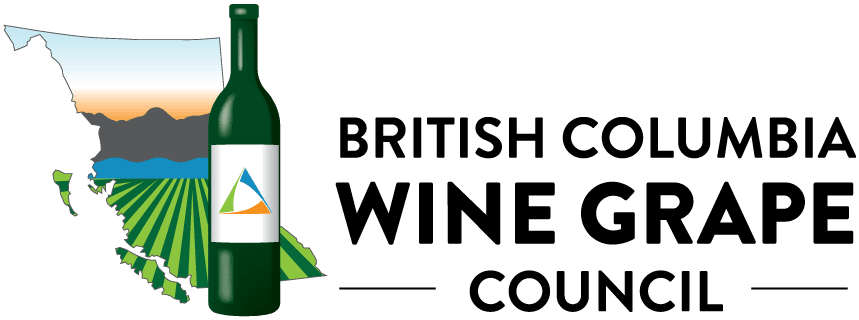Who or what does the organization report to?
The government of British Columbia
Mandatory/Regulatory or Voluntary/Non-Regulatory
Mandatory/Regulatory, Voluntary/Non-Regulatory
Description
The LDB’s mandatory function is to generate revenue for the province of BC, ensure accountability of key business partners and deter the sale of alcohol to minors. As the sole wholesaler of liquor in the province, wineries and other manufacturers may only sell and distribute their products if they are authorized to do so by the LDB.
The LDB operates BC Liquor Stores (BCLS), which compete in a mixed public-private retail model. BCLS selects products to be listed/stocked in stores based on several criteria, to ensure fairness and consistency. BCLS is a strong supporter and advocate for the BC wine industry.
Summary
The Liquor Distribution Branch (LDB) is one of two branches of the Provincial government responsible for the wholesale distribution and retail sale of beverage alcohol and non-medical cannabis. While it is not a crown corporation, the LDB is required to comply within the requirements of a Crown agency in relation to its financial reporting, service plan and mandate letter.
To fulfill its responsibilities to the Government and the people of BC, the LDB:
- generates revenue for the Government of BC;
- ensures accountability of key business partners; and
- develops and implements programs and services aimed at deterring the sale of non-medical cannabis and beverage alcohol to minors and those who appear intoxicated.
The LDB is proud to contribute more than $1 billion annually to the Province of B.C., helping to provide financial support for vital public services such as health care and education.
Required Reporting for BC Vineyards/Wineries
Required registration and reporting
Before a winery or any other manufacturer sells their product, it must be registered and its price confirmed with the LDB. Product registration and price changes can be done through the Vendor Facing Website. Access is provided after you receive the Final Approval Package from LDB’s Regulatory Department.
The Wholesale Supply Chain Department approves/denies product registrations, and manages product and supplier information, stock and inventory allocation. A list of Wholesale Contacts is provided in the Resources tab on the Vendor Facing Website.
The Wholesale Pricing Department is responsible for establishing and maintaining wholesale prices and special customer prices for new and active registered beverage alcohol products in the province. Wholesale Pricing Information for potential vendors is available upon request. For further information, please contact [email protected].
All liquor manufacturers in BC – including wineries — must report direct sales to all specified customers in BC to the LDB, online, via the Direct Sales Web-Reporting (DSWR) application.
The LDB’s Wholesale Private Distribution Reporting Department is responsible for collecting sales data information from manufacturers and monitoring reporting compliance. The department also supports manufacturers with necessary training and responds to their reporting-related inquiries.
For question related to sales reporting, contact [email protected]
Benefits/Costs of joining
The LDB is the sole liquor wholesaler in the province, purchasing and then distributing product to retailers and hospitality customers. All products are subject to a wholesale mark-up, which is legislated by the Provincial government.
The LDB’s wholesale mark-up on wine is 89%; once calculated it is added to the supplier price, container recycling fee, and Goods and Services Tax to arrive at the LDB Wholesale Price.
How is this organization involved with starting a Vineyard/ Winery?
Getting started
Any business that intends to produce liquor in the province must be licensed by the Liquor & Cannabis Regulation Branch (LCRB).
The LDB is the sole wholesaler in the province, and manufacturers may only sell and distribute their products if they are authorized to do so by the LDB. All authorized manufacturers – including wineries – must have a signed sales agreement with the LDB, which will consider applications only after the manufacturer has applied for a Manufacturer Licence with the LCRB.
Once the information is collected and verified, the LDB signs a sales agreement with a successful applicant. The sales agreement regulates how the manufacturer may sell and distribute its products, and provides requirements relating to reporting sales, making payments and maintaining records.
The LDB uses an established set of criteria to determine the manufacturing type and input in order to establish the classification of an applicant. An on-site inspection is required to confirm compliance with the agreement terms.
There are two sales agreements under which wineries may operate:
Land-based: wineries that meet the qualifying land-based winery policy criteria. The criteria include the following:
Must use 100% BC inputs
Must own or lease at least 2 acres of vineyards or orchards at the licensed winery site,
minimum of 25% of the product must come from land owned or leased by the producer
Must produce the product at the agricultural site
Must use traditional wine making techniques
May use wine from other land-based wineries but not from a commercial winery
Owners may not share common ownership or management with a Commercial winery.
Commercial: any winery that does not meet any one of the eligibility criteria for land-based winery designation. Inputs may be sourced from BC or elsewhere, including the wine itself (i.e. can import bulk).
Land-based wineries enjoy some benefits that Commercial wineries do not, please review the sales agreements for each type of manufacturer for more information.
